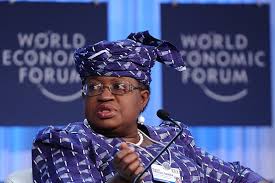The federation’s dwindling monthly revenue has maintained its trend as the three tiers of government had to share only N611. 767. billion from accruals into the Federation Account and earnings from the Value Added Tax, VAT in the month of August.
The Accountant- General of the Federation, AGF, Mr. Jonah Otunla told journalists at the end of the Federal Accounts Allocation Committee, FAAC, meeting in Abuja, yesterday, that the decrease in revenue was due largely to fall in crude oil proceeds.
“There was decline in revenue in the month of August which was attributed to the Force majeure declared by Shell and a series of Shutdown of Trunklines and Pipelines at various Terminals”, he explained.
The federal government which takes 52.68 per cent of the Statutory Allocations and 15 per cent of VAT got a total of N246.947 billion; while states which receive 26.72 per cent of Statutory Allocation and 50 per cent of VAT got a total of N141.288 billion. Local government were given N65.512 billion, representing 20.60 per cent Statutory Allocation and 35 per cent of VAT.
In addition, the nine oil producing states received additional N 44.846 billion representing 13 per cent derivation.
The total distributable was N77.171 billion less than the budgeted figure of N688.938 billion for the month under review and N42.818 billion less than what the three tiers of government shared in the previous month.
Gross revenue was put at N660.7 billion but after a series of deductions , it was agreed by the committee that what was left for distribution had to be augmented as various Commissioners of Finance spoke of the financial challenges facing their states.
Consequently, N35 billion was added from the SURE-P funds and another N36.394 billion was added under “Special Distribution to the three tiers of government”, as well as, N10 billion refund from the Nigerian National Petroleum Corporation, NNPC.
Fielding journalists questions after the meeting, the Chairman of State Commissioners of finance, Mr. Timothy Odaah, maintained that the decision by the state governments that the fuel subsidy be removed was one major way to address the paucity of funds.
According to him, the subsidy was not making the needed impact on the lives of the people and should therefore be removed and the funds used for it freed to enable each state apply it as they desire.
His words, “we are still agitating for subsidy removal. We have made our appeal to the federal government . it was debated here and we have agreed on it. Now we are unable to meet the benchmark, so what is the need for the subsidy?
“We have agreed that subsidy should go so that we can have the money and each of the states can plan more on how best to apply the subsidy”.
He noted that the states were facing the stark reality of over dependence on oil revenue and that it was time for every state government to restrategise on how to expanding its revenue base with a view to meeting the challenges of growing expenditure at the face of dwindling revenue from crude oil.


